
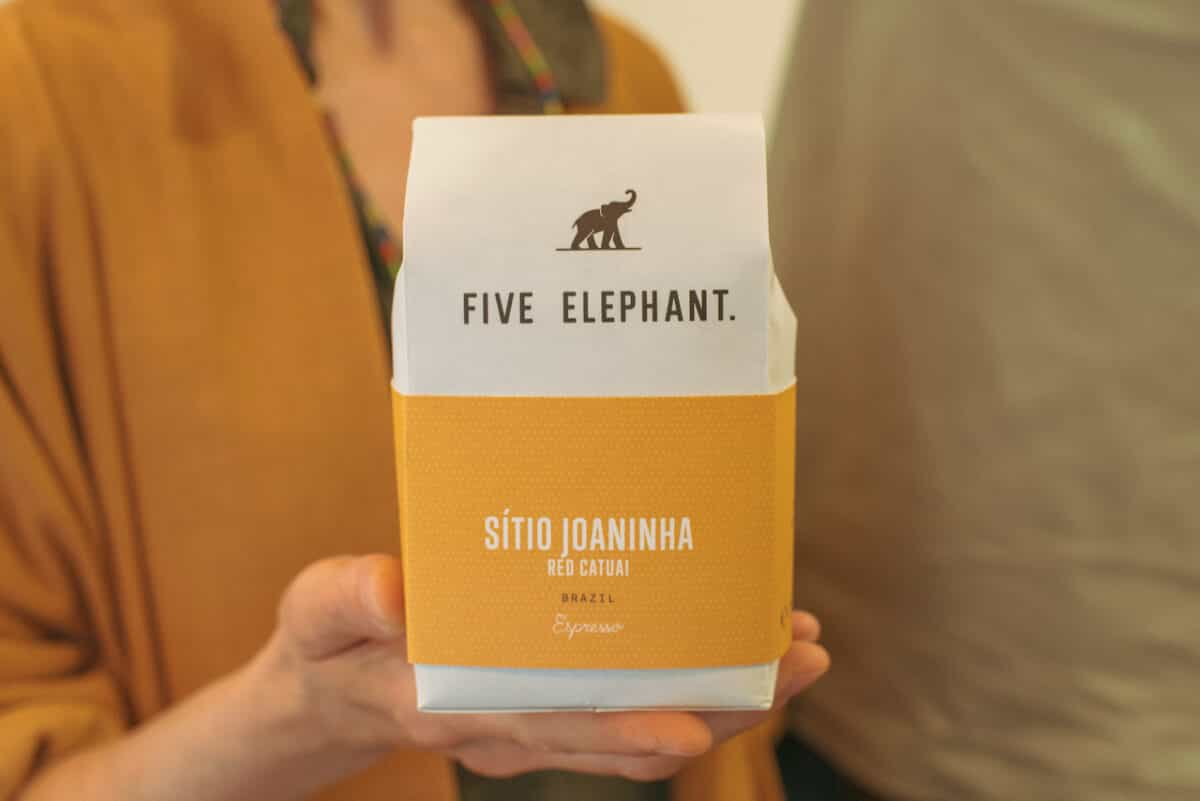
Five Elephant has been roasting coffee in-house while sourcing coffee through direct trade from coffee producers since its founding in 2010. They were the first client of Nordic Approach, a Norwegian green coffee beans trading company. Currently, the company roasts one hundred tons of coffee beans per year and sells them not only to high-end customers locally and globally, but also to the wider population through other brands. Today, Five Elephant has grown to a total of four coffee shops in Berlin, but the thought at the core has not changed since its founding. We interviewed the founders, the Schackmans, who aspire to have lifelong relationships with producers.
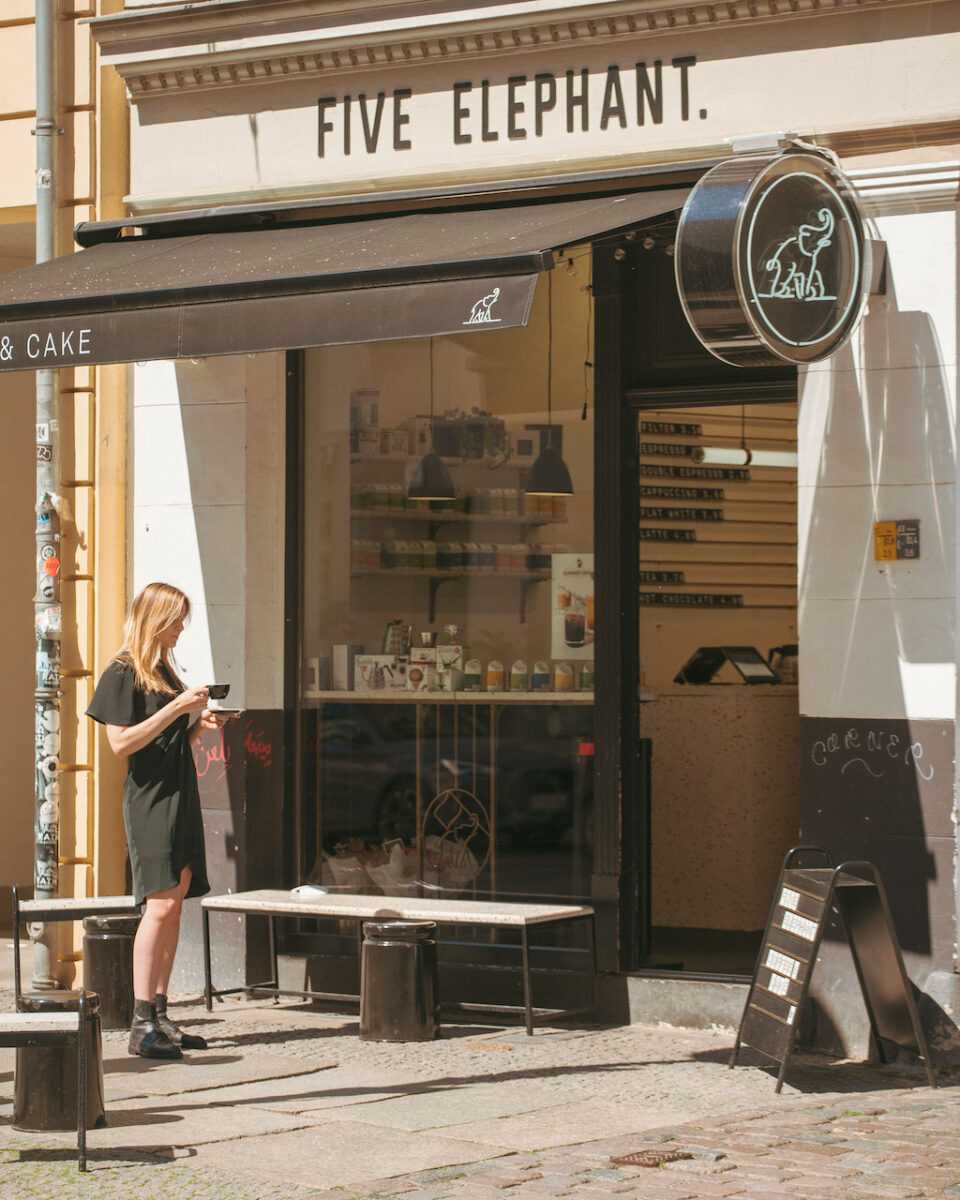
My normal was not “normal.”
Five Elephant is a coffee brand that builds relationships with coffee producers, purchases green coffee beans directly from producers, and roasting coffee at its headquarters, located in Kreuzberg, around one hundred meters from their first shop. Five Elephant, which brought this style of operation to Germany, has been a pioneer in the specialty coffee industry. However, as is the fate of a pioneer, the company wasn’t understood well at first by the public.
“When we opened our coffee shop, there was probably only one coffee shop in Germany that used direct trade, located in Hamburg. Everyone in Berlin thought we were crazy. To me, it was more of a mystery why other people didn’t do such a ‘normal’ thing, and I saw it as an opportunity.”

Kris had been living in the U.S. before he moved to Berlin so specialty coffee was very familiar to him. When the pioneers of the coffee world started to appear in the US, Kris was drinking coffee that can be traced to coffee origins only.
Kris states, “I was a college student in 1995 when I had my first taste of good coffee at Scott Rao’s first roastery in Amherst, Massachusetts who wrote books for professional baristas. Once you have had a cup of coffee like this, you will never be able to go back to drinking a different type of coffee.”
“After graduating from college, I started working in the film industry. Although I was not directly involved in coffee, I was fascinated by Scott’s experimentation in finding the best roasting method to make good coffee. In fact, many of the universal techniques and ideas for defining roasting profiles known today were made popular by him.”


“We want to contribute to the improvement of our partners’ lives.”
It was in 2011 that the company, which had been involved with direct trade since its inception, clarified its direction in the business when they visited places of coffee origin for the first time.
His wife, Sophie recalls, “We visited several producers in Costa Rica and Panama and were struck by the enormous amount of labor that goes into producing coffee. At the same time, I was also struck by how little I knew about this reality.”
“When I saw workers walking up and down steep hills with harvested green coffee beans on their backs while taking care of their children all day long, I intuitively thought that they should be paid more than they were currently paid. This is the source of my motivation- that I want to support and should support these people who are paid too little for the amount of work they do.”
“On a different note, I was also inspired by the passion of the producers of specialty coffee. For example, the Croces in Brazil, with whom we did our first direct trade, are passionate about knowing how all the elements, such as soil and other plants, work together to produce high-quality coffee.”

“What we value is having a partnership in which we can maintain a long-term and stable relationship with producers and support all producers with the same enthusiasm. We can confidently say that the four producers we are currently doing business with are our strongest partners.”
“As a business owner, and if you are thinking not only about Berlin but also about the world, the first and foremost thing you should focus on is coffee and roasting. I have been baking and selling cakes for a while since the company was founded, and although there are parts of me that miss baking, cakes play only a supporting role.”
“The reason we want to grow our company is that we want to support the livelihoods of coffee producers and help improve the incomes and health of the people who pick the coffee. We also want to increase the number of partners we can support. Our goal has been to grow together with our partners and buy as much coffee as possible from them to bring stability to their lives.”

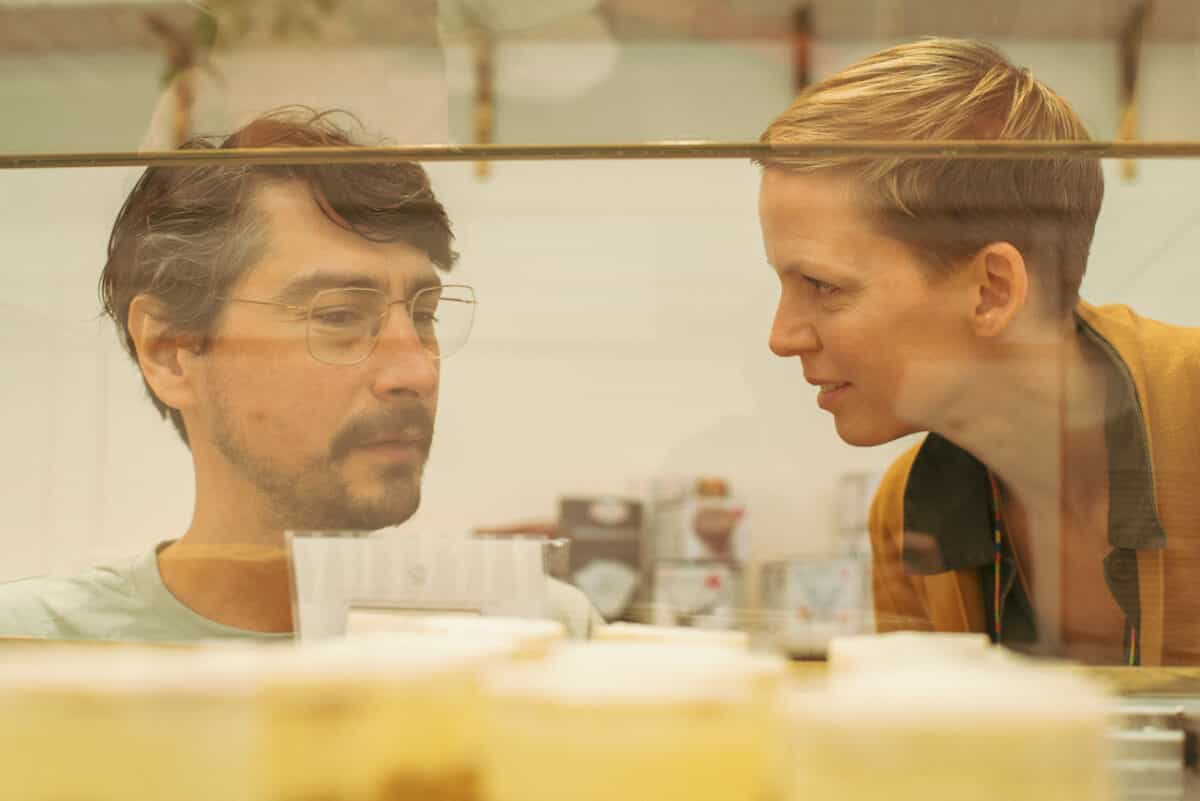
Love is and will change the world.
At Five Elephant, the owners try to build lifelong relationships with coffee producers as partners, and these relationships are not necessarily limited to just buying and selling green coffee beans. Five Elephant provided guidance on coffee drying and handling methods and provided drying racks to improve sanitation in the environment in Kenya.
“I believe that love is what the entire specialty coffee industry needs in order to grow. One day, I realized that I could look at an object and feel the love that went into it. I believe that love is always there to help and guide things in the right direction. If you put your heart and love into an object, it becomes a good object.”
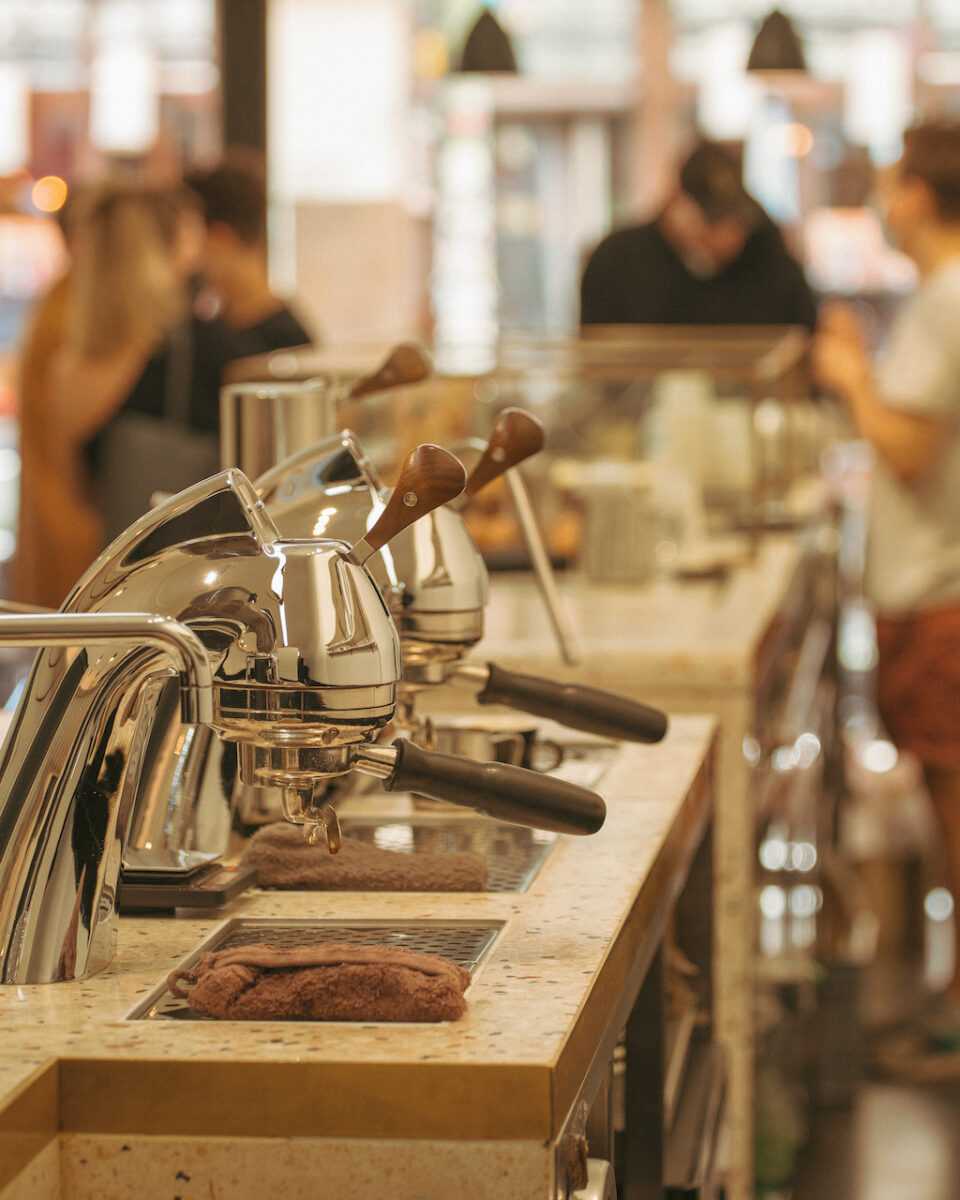
Kris also feels the same about Sophie’s way of thinking.
“Many people are hesitant to use the word ‘love,’ but if we don’t try to understand each other, accept each other’s differences, nor emit positive and good energy, I don’t think we have a future. It’s impossible to create a bright future out of anger and ego.”
“Having said that, we can’t say that we are always full of love and empathy. There are ups and downs in life and in business. There are times when it can be very difficult to lead your team and when you are challenged in providing the best service possible for our customers. There is always some kind of ebb and flow, but the goal is always to be better. As the company has grown in the last few years, how to lead and develop people has been a major concern.”
“One of the things I’ve learned is that in order to help my team members grow, I need to explain my ideas as clearly as possible to them. Instead of conceding to them, I need to change the way I approach them.”
“Through my experience in management, I have learned the importance of trusting people. I believe that trust is love for and understanding of people. I try to think about things from the perspective and standpoint of my team members, but that’s not as easy as it seems.”
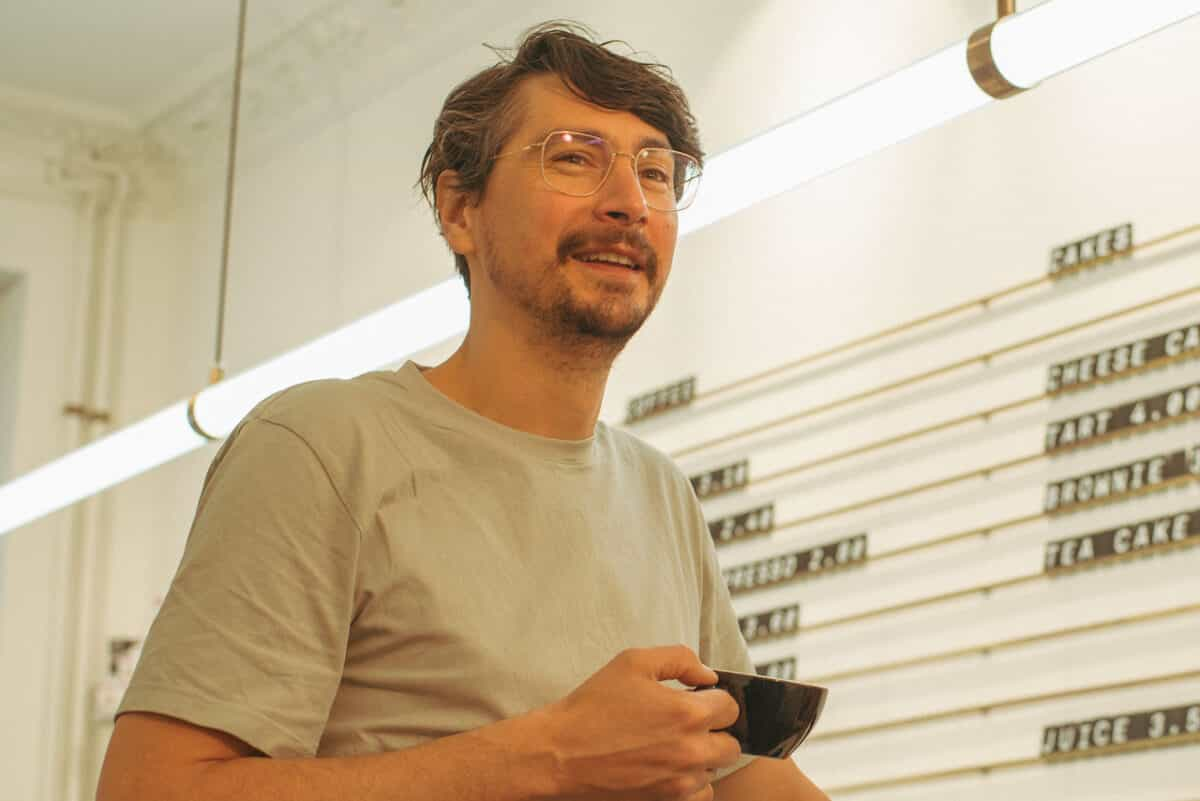
When Kris was in the U.S., he was involved in the production of major movies such as “Night at the Museum” and “Spider-Man.” Once he even worked for 28 hours without a break at a workplace where mistakes were not tolerated, and if they did happen, there was a system in place to cover them immediately. Unlike the system that exists in Germany, there was no health insurance of any sort, nor any unpaid leaves or holidays.
“In contrast, for many of the young staff working here, the generous Berlin package is a standard, with the appropriate number of paid leaves, secured in a good working environment, and with good social healthcare benefits. Basically, this means that it’s difficult to expect our staff to go through the same working condition as I experienced before. Rather than imposing my values on people from different backgrounds, experiences, and the time they grew up, I first try to understand what stage of life they are in and what they are trying to accomplish. If you neglect this process and if you are frustrated with them, or if you pick the wrong people, you’re not going to be successful.”


Things that haven’t changed for the past ten years.
The history of Five Elephant, which has its HQ Roastery and four branches in Berlin as of 2021, began when the couple built a coffee shop using only a saw and an electric screwdriver. When they started, they didn’t expect a lot of customers, but as they focused on supporting communities and providing quality customer service while roasting and baking cakes, the sales and the number of staff increased accordingly. Having said that, expanding the scale of the business is not the essence or goal of Five Elephant.
“The key to the entire process of getting coffee from producers to customers from cultivating coffee to brewing, roasting, and cupping is to have a set of standards as a reference. It’s only when you know what is best for you and compare it to others that you can understand the differences. On the other hand, if you don’t have a reference, you won’t know what choice you should make. It’s like without having a compass pointing north at all times, we would be lost.”
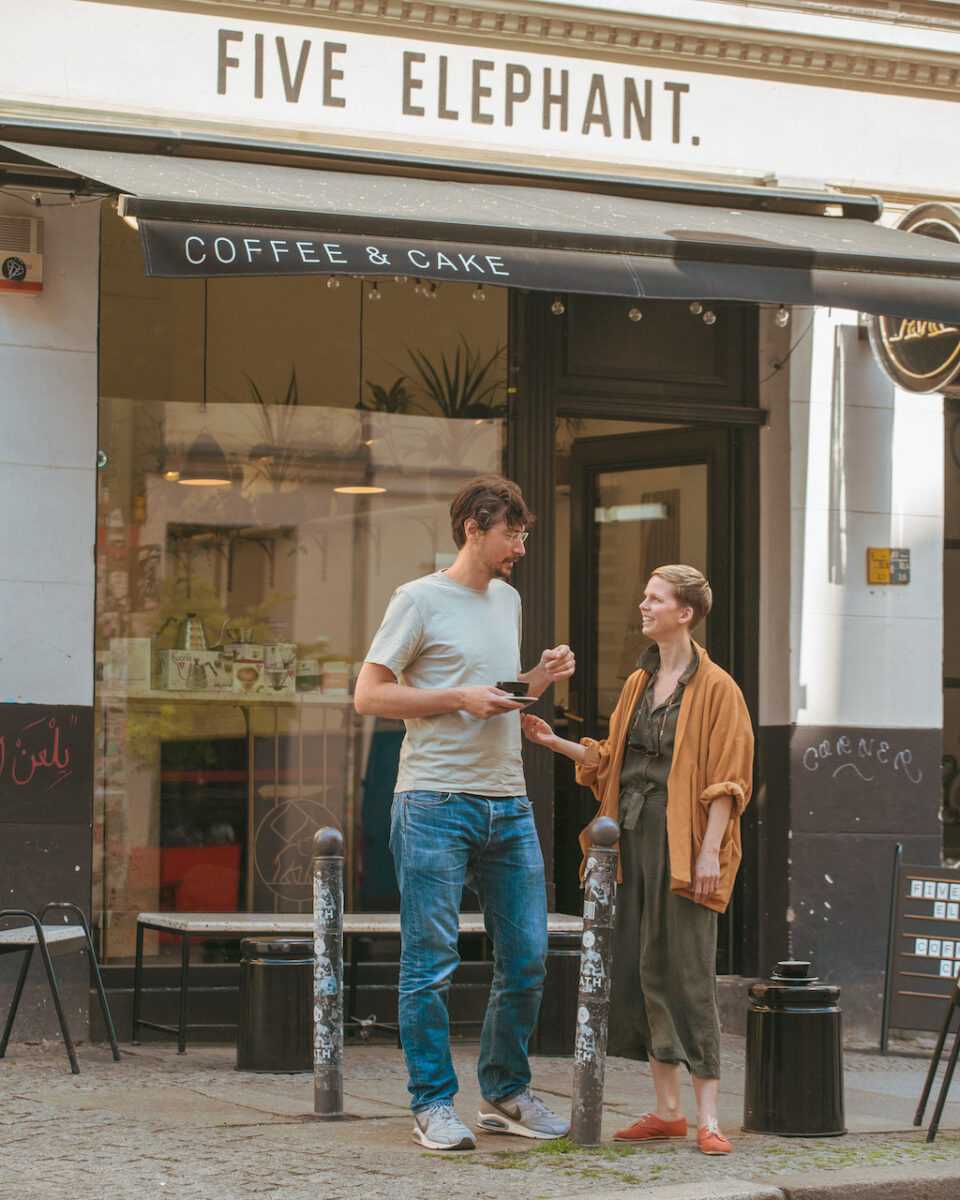
Sophie and Kris share the same values placing importance on going back to the basics.
Sophie states, “Kris and I sit next to each other at work and live under the same roof in our personal lives. Five Elephant was started by two people, so when we need to make a big decision, set a future direction, or want to change something, we always have a meeting to discuss our opinions. Now the company has grown and we both focus mostly on running the business, but in my mind, I always still feel the same as when we opened the shop with Kris roasting the coffee and me baking the cakes.”
They were born and grew up in different environments having different experiences. The love that Sophie and Kris have nurtured over time by understanding and respecting each other’s differences is probably the core of Five Elephant, which values the relationships with producers, staff, and customers.
Originally written in Japanese by Tatsuya Nakamichi.
MY FAVORITE COFFEE
“When we are at the cupping table, tasting and slurping ten cups of coffee, and feeling the difference in taste, behind every cup is a story about the environment where the coffee was grown and on what kind of tree it was grown. It’s a pleasure when we can have this journey back to a memory once again through a single cup of coffee.”

Five Elephant Kreuzberg
- [Open]
- Mon-Fri: 8:00-18:00 / Sat, Sun: 9:00-18:00
Five Elephant
Five Elephant
Prenzlauer Berg
- [Open]
- Mon-Fri: 8:00-18:00 / Sat, Sun: 10:00-18:00








